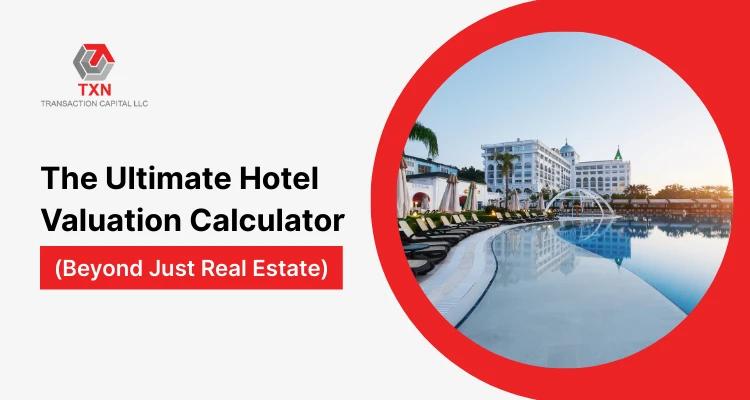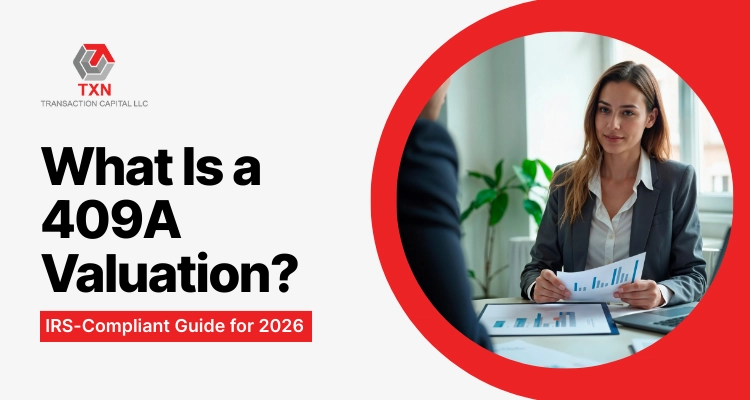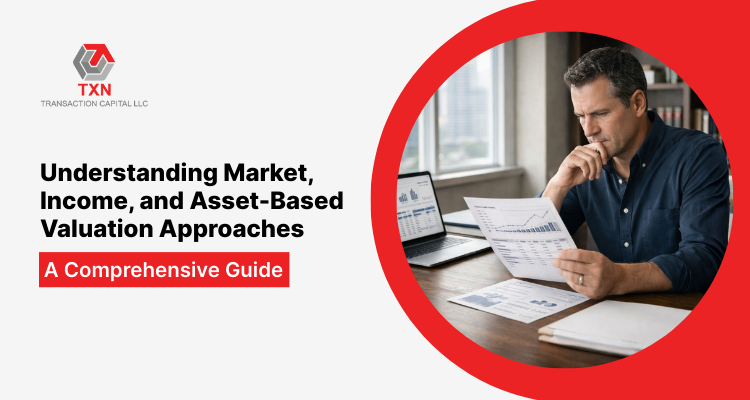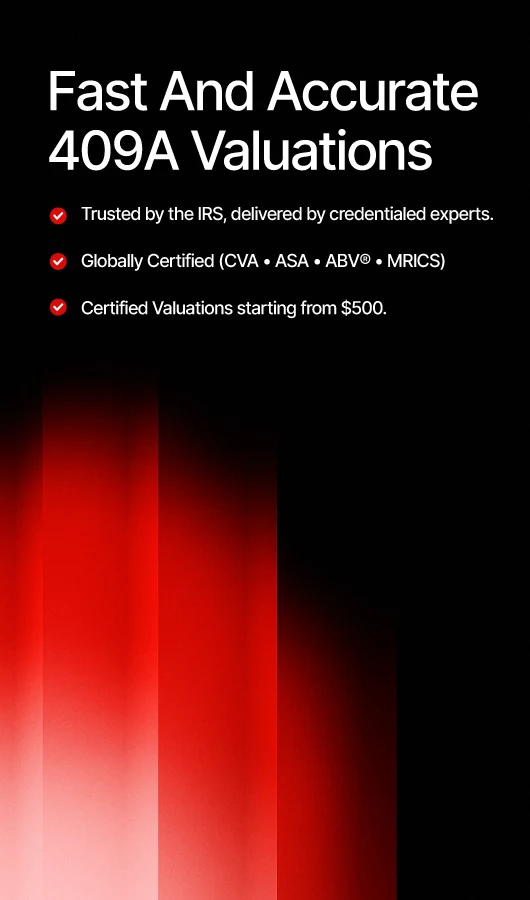The Ultimate Hotel Valuation Calculator (Beyond Just Real Estate)

A hotel valuation calculator goes far beyond simple real estate metrics. Unlike standard properties, hotels require specialized analysis of operational performance, brand equity, and revenue streams. Professional hotel valuations typically range from $125,000 to $400,000 per room, depending on location, brand affiliation, and financial performance.
Are you trying to determine your hotel's true market value? Whether you're considering a sale, refinancing, or investment decision, understanding how hospitality properties are valued can save you thousands—or help you capture millions in hidden value.
This article explores why hotel valuation goes beyond traditional real estate, outlining the key factors that influence a hotel’s worth. It examines the primary valuation methods under the RICS Red Book framework, introduces a simplified Hotel Valuation Calculator, and explains why MRICS-backed valuations provide unique global credibility.
Why Hotel Valuation Differs from Standard Real Estate Appraisals
Do you think hotel valuation is just about location and square footage? Think again.
Consider two identical buildings on the same street: a luxury Marriott consistently achieving 80% occupancy at $350 per night, and an independent motel struggling at 45% occupancy at $120 per night. The difference in their valuations could be $50 million or more—despite identical real estate.
Hotels operate as businesses wrapped in real estate, making their valuation significantly more complex than traditional properties. Here's why:
Operating Business vs. Static Asset
- Hotels generate revenue through daily operations, not long-term leases
- Performance fluctuates based on management efficiency, brand strength, and market conditions
- Revenue streams include rooms, food & beverage, conferences, and ancillary services
- Success depends on operational expertise, not just property characteristics
Variable Income Streams
Unlike office buildings with predictable lease income, hotels face:
- Seasonal demand variations
- Daily rate fluctuations
- Competitive pressure impacts
- Economic sensitivity effects
This complexity requires specialized Business Valuation Services that account for both tangible assets and operational performance—a core expertise at Transaction Capital LLC.
What Makes a Hotel Valuation Calculator Reliable?
Professional hotel valuation calculators must incorporate multiple performance metrics beyond basic real estate factors. Here are the essential components:
Revenue Performance Indicators
- Average Daily Rate (ADR): The average price charged per occupied room
- Occupancy Rate: Percentage of available rooms filled over a specific period
- Revenue per Available Room (RevPAR): ADR multiplied by occupancy rate—the industry's gold standard metric
Operational Efficiency Metrics
- Net Operating Income (NOI): Gross operating income minus operating expenses (excluding debt service and taxes)
- EBITDA Margins: Earnings before interest, taxes, depreciation, and amortization as percentage of revenue
- GOP (Gross Operating Profit): Revenue minus direct operating expenses
Market Position Factors
- Brand affiliation strength and franchise fees
- Location desirability and demand generators
- Competitive set analysis and market penetration
- Seasonality patterns and revenue predictability
How Do Professional Hotel Valuation Methods Work?
The RICS Red Book framework—the global gold standard for property valuation—recognizes hotels as "trade-related properties" requiring specialized approaches. Here are the four primary methods:
1. Income Capitalization Method (Cap Rate Approach)
Formula: Property Value = Net Operating Income ÷ Capitalization Rate
Best For: Stabilized properties with consistent income streams
Example Calculation:
- Annual NOI: $2.5 million
- Market Cap Rate: 8.5%
- Estimated Value: $29.4 million
This method works well for established hotels with predictable performance but may undervalue properties with growth potential.
2. Discounted Cash Flow (DCF) Analysis
The most comprehensive approach, projecting future cash flows and discounting them to present value.
Key Steps:
- Project 5-10 years of operational cash flows
- Apply appropriate discount rate (typically WACC + risk premium)
- Calculate terminal value using exit multiple or perpetuity growth
- Sum discounted cash flows plus terminal value
Best For: Full-service hotels, resorts, and properties with significant expansion potential
3. Market Comparison (Sales Approach)
Analyzes recent sales of comparable hotel properties, adjusted for differences in:
- Property size and room count
- Location and market conditions
- Brand affiliation and management
- Physical condition and recent renovations
Common Multiples:
- Price per room (most common)
- EV/EBITDA ratios
- Price-to-revenue multiples
4. Cost Replacement Method
Estimates the cost to construct a similar property today, minus depreciation and obsolescence.
Best For:
- Newly constructed properties
- Unique or specialized hospitality assets
- Properties in markets with limited comparable sales
Professional valuators often apply multiple methods to cross-verify results, ensuring accuracy and defensibility.
Hotel Valuation Calculator: Step-by-Step Process
While professional valuations require detailed financial modeling, here's a simplified calculator approach for preliminary estimates:
Required Inputs
- Annual gross revenue
- Operating expense ratio (typically 60-75% of revenue)
- Growth rate projections (3-10 years)
- Appropriate discount rate (8-12% for hotels)
- Terminal capitalization rate
Calculation Steps:
- Step 1: Calculate Net Operating Income – NOI = Gross Revenue × (1 - Operating Expense Ratio)
- Step 2: Project Future Cash Flows – Apply growth rate to NOI for projection period
- Step 3: Determine Terminal Value – Terminal Value = Final Year NOI ÷ Terminal Cap Rate
- Step 4: Discount to Present Value – Sum all discounted cash flows plus discounted terminal value
Sample Calculation
Property Details:
- Current Annual Revenue: $8 million
- Operating Expense Ratio: 65%
- NOI: $2.8 million
- Projected Growth: 4% annually
- Discount Rate: 9.5%
- Terminal Cap Rate: 8%
Estimated Value Range: $32-38 million
Note: This simplified approach provides ballpark estimates only. Professional valuations require comprehensive market analysis, detailed financial modeling, and regulatory compliance.
What Key Factors Drive Hotel Property Values?
Understanding value drivers helps property owners maximize their asset's worth and make informed investment decisions.
1. Occupancy Rate and ADR (Average Daily Rate)
Occupancy Rate represents the percentage of available rooms filled during a specific period, while Average Daily Rate (ADR) measures the average price charged per occupied room.
These two metrics combine to create RevPAR (Revenue per Available Room), calculated as: RevPAR = ADR × Occupancy Rate
A hotel achieving 75% occupancy at $200 ADR generates $150 RevPAR, while a property with 60% occupancy at $250 ADR only achieves $150 RevPAR. This demonstrates why balanced performance across both metrics is crucial for maximizing property value.
2. RevPAR – The Core Benchmark
RevPAR reveals whether a hotel maximizes its revenue potential relative to its physical capacity. Higher RevPAR typically indicates:
- Superior management effectiveness in pricing and inventory control
- Strong market positioning and competitive advantages
- Operational efficiency in driving both rates and occupancy
- Enhanced financing capacity for refinancing or expansion
Properties with consistently growing RevPAR command premium valuations because they demonstrate sustainable competitive advantages and management excellence.
3. Location and Demand Generators
Strategic positioning near key demand generators creates stable revenue streams and pricing power:
Primary Demand Drivers:
- International airports and transportation hubs
- Tourist attractions and entertainment districts
- Financial centers and corporate headquarters
- Convention facilities and meeting venues
- Medical complexes and educational institutions
Hotels benefit from location through reduced marketing costs, higher occupancy predictability, and ability to command premium rates during peak demand periods.
4. Brand Affiliation and Management
Branded Properties (Marriott, Hilton, Hyatt) typically command higher valuations due to:
- Established loyalty programs driving repeat business
- Professional revenue management systems
- Global distribution networks and marketing reach
- Standardized operational procedures
Independent Hotels can compete effectively by offering:
- Lower franchise fees (typically 3-6% savings)
- Greater operational flexibility and local customization
- Unique guest experiences and personalized service
- Higher profit margins on food, beverage, and ancillary services
The key factor is management quality rather than brand affiliation alone.
5. Seasonality
Seasonality Impact varies significantly by property type:
High Seasonality Properties (ski resorts, beach hotels):
- Experience 40-60% revenue fluctuations between peak and off-seasons
- Require sophisticated cash flow modeling in DCF analysis
- May justify lower capitalization rates due to income volatility
Stable Occupancy Properties (business hotels, airport properties):
- Maintain more consistent year-round performance
- Support higher valuations through predictable cash flows
- Appeal to conservative investors and lenders
Predictable revenue patterns always add value by reducing investment risk and improving financing terms.
6. Net Operating Income (NOI)
Net Operating Income (NOI) serves as the foundation for most valuation methods:
Formula: NOI = Gross Operating Income - Operating Expenses
NOI directly impacts:
- Property valuation through capitalization rate and DCF methods
- Lending capacity as banks typically lend based on NOI multiples
- Investment attractiveness by demonstrating operational efficiency
- Sale price as buyers focus on income-producing capability
NOI Optimization Strategies:
- Implement dynamic pricing systems to maximize ADR
- Develop ancillary revenue streams (parking, F&B, meetings)
- Control labor costs through efficient scheduling
- Negotiate favorable vendor contracts and franchise terms
Higher NOI creates a multiplier effect on property value, making operational improvements one of the most effective value-creation strategies available to hotel owners.
How Does Hotel NOI Impact Valuation Results?
Net Operating Income serves as the foundation for most hotel valuation methods, making its accurate calculation critical for reliable results.
NOI Calculation Formula
Gross Operating Income Includes:
- Room revenue (primary driver—typically 60-75% of total)
- Food & beverage sales
- Meeting room and banquet income
- Parking and other ancillary services
- Business center and telecommunications
Operating Expenses Include:
- Payroll and benefits (largest expense—typically 35-45%)
- Utilities and energy costs
- Marketing and sales expenses
- Property maintenance and repairs
- Insurance and property taxes
- Management and franchise fees
Excluded from NOI:
- Debt service (principal and interest)
- Income taxes
- Depreciation and amortization
- Capital expenditures
NOI Optimization Strategies
Revenue Enhancement:
- Implement revenue management systems
- Optimize distribution channel mix
- Develop ancillary revenue streams
- Enhance guest experience and loyalty
Expense Management:
- Energy efficiency improvements
- Labor scheduling optimization
- Vendor contract renegotiation
- Technology automation implementation
Higher NOI directly translates to increased property value across all valuation methods, making operational improvements one of the most effective value-creation strategies.
Why Choose RICS Red Book Compliant Hotel Valuations?
The RICS (Royal Institution of Chartered Surveyors) Red Book Global Standards represent the international gold standard for property valuation, providing unmatched credibility and acceptance.
Global Recognition and Acceptance
RICS Red Book valuations are recognized and accepted by:
- International banks and lending institutions
- Regulatory authorities in 140+ countries
- Big Four accounting firms for audit purposes
- Courts and legal systems worldwide
- Institutional investors and private equity funds
Mandatory Requirements
- Independence: Valuers must maintain objectivity and avoid conflicts of interest
- Transparency: All assumptions, methods, and limitations must be clearly documented
- Consistency: Standardized approaches ensure international comparability
- Defensibility: Reports withstand scrutiny from auditors, regulators, and courts
Trade-Related Property Expertise
The Red Book provides specific guidance for hospitality assets, ensuring:
- Proper treatment of operational components
- Market-based cash flow assumptions
- Appropriate consideration of franchise agreements
- Accurate reflection of capital expenditure requirements
When Should Hotels Be Revalued?
Regular revaluation ensures accurate financial reporting, optimal financing, and informed strategic decisions.
Recommended Timing
- Annual Revaluations: Required for public companies and many institutional owners
- Biennial Revaluations: Standard for private ownership with stable operations
- Event-Driven Revaluations: Triggered by significant changes
Triggering Events
Physical Changes:
- Major renovations or expansions
- Brand conversions or flag changes
- Addition of new facilities or amenities
- Significant capital improvements
Market Changes:
- New competitive supply
- Major demand generator changes
- Economic shifts affecting travel patterns
- Interest rate fluctuations
Operational Changes:
- Management company transitions
- Significant performance improvements or declines
- New franchise agreements
- Strategic repositioning efforts
Financial Requirements:
- Refinancing or loan modifications
- Merger and acquisition activities
- Estate planning and gift tax valuations
- Insurance claim settlements
How Our Hotel Valuation Process Works
Our comprehensive approach ensures accurate, defensible results that meet all regulatory and audit requirements.
Phase 1: Property Assessment and Data Collection
- Physical property inspection and condition assessment
- Review of historical financial performance (3-5 years)
- Analysis of operating agreements and franchise contracts
- Market research and competitive analysis
Phase 2: Financial Analysis and Modeling
- Detailed review of revenue and expense trends
- Development of forward-looking projections
- Sensitivity analysis on key assumptions
- Risk assessment and discount rate determination
Phase 3: Valuation Method Application
- Income approach modeling (DCF and direct capitalization)
- Market approach analysis with comparable sales
- Cost approach when applicable
- Reconciliation of multiple method results
Phase 4: Report Preparation and Quality Review
- Comprehensive written report preparation
- Internal quality control and peer review
- Final report delivery with executive summary
- Post-delivery support for questions and clarifications
Deliverables Include:
- Executive summary with key conclusions
- Detailed methodology explanation
- Supporting market data and analysis
- Comprehensive financial modeling
- Professional certification and signatures
Real-World Hotel Valuation Examples
Understanding how valuation principles apply in practice helps property owners make informed decisions.
Case Study 1: Urban Business Hotel
Property Profile:
- 200-room business hotel in major metropolitan market
- Branded property with national chain affiliation
- Located in central business district
Financial Performance:
- Average ADR: $245
- Occupancy Rate: 72%
- RevPAR: $176
- Annual Revenue: $12.8 million
- NOI: $4.2 million
Valuation Results:
- Income Approach: $48.5 million
- Market Approach: $52.1 million
- Final Value Conclusion: $50.3 million
- Per-Room Value: $251,500
Case Study 2: Resort Property
Property Profile:
- 150-room resort property in leisure destination
- Independent operation with strong local brand
- Seasonal operation with conference facilities
Financial Performance:
- Average ADR: $385
- Occupancy Rate: 58%
- RevPAR: $223
- Annual Revenue: $18.2 million
- NOI: $5.8 million
Valuation Results:
- Income Approach: $62.8 million
- Market Approach: $59.5 million
- Final Value Conclusion: $61.2 million
- Per-Room Value: $408,000
These examples demonstrate how different property types, markets, and operational characteristics significantly impact valuation results.
Why Choose Transaction Capital LLC for Hotel Valuations?
Our unique combination of credentials, experience, and industry expertise makes us the preferred choice for hospitality asset valuations.
Unmatched Credential Portfolio
We're one of the few firms combining MRICS, ABV®, ASA®, and CVA® credentials, ensuring our valuations meet international standards and regulatory requirements across all jurisdictions.
Proven Track Record
- 1,500+ completed hotel and hospitality valuations
- 35+ industries served with specialized expertise
- 15+ years of investment banking and venture capital experience
- 100% audit defensibility record with Big Four firms
Comprehensive Service Offering
Beyond hotel valuations, we provide:
- Real Estate Valuation Services for mixed-use developments
- Business Valuation Services for hospitality management companies
- Intangible Valuation for brand names and franchise agreements
- Fairness Opinions for hotel transactions and mergers
- ESOP Valuation Services for employee ownership transitions
Client-Focused Approach
- FREE 15-minute consultation to understand your needs
- Rapid turnaround times (2-5 business days for standard reports)
- Competitive pricing starting at $500 for basic valuations
- Post-valuation audit support at no additional cost
- Direct access to credentialed professionals
Global Standards Compliance
Our valuations simultaneously comply with:
- RICS Red Book Global Standards (international)
- USPAP Standards (United States)
- International Valuation Standards (IVS)
- AICPA Business Valuation Standards
This comprehensive compliance ensures acceptance by lenders, investors, auditors, and regulatory authorities worldwide.
Get Your Professional Hotel Valuation Today
Transaction Capital LLC combines unmatched credentials (MRICS, ABV®, ASA®, CVA®) with 15+ years of hospitality expertise to deliver globally recognized, audit-defensible valuations. Our reports satisfy lenders, investors, auditors, and regulatory authorities worldwide.
Ready to discover your hotel's true market value? Don't rely on basic calculators or outdated estimates when making million-dollar decisions.
Schedule Your FREE Consultation today to discuss your hotel valuation needs.
Frequently Asked Questions About Pre-Money Valuation
Online calculators provide rough estimates based on basic inputs like revenue and cap rates. However, they cannot account for property-specific factors like condition, brand strength, market position, or complex capital structures. Professional appraisals typically vary 15-25% from online estimates, with accuracy depending on the calculator's sophistication and data quality.
Professional valuations provide defensible, audit-ready results required for financing, tax compliance, and transaction purposes.
Hotel valuation costs vary based on property complexity, intended use, and required standards:
- Basic Desktop Valuations: $2,500-$7,500 (for internal planning)
- Full Appraisal Reports: $7,500-$25,000 (for financing and transactions)
- RICS Red Book Reports: $15,000-$35,000 (for international transactions)
- Litigation Support: $25,000-$75,000 (court testimony included)
At Transaction Capital LLC, our competitive pricing starts at $500 for basic valuations, with most hotel appraisals ranging $5,000-$15,000 depending on scope and complexity.
Standard timeframes include:
- Desktop Valuations: 3-5 business days
- Full Appraisals: 5-10 business days
- Complex Properties: 10-15 business days
- Portfolio Valuations: 2-4 weeks
Our streamlined process at Transaction Capital LLC typically delivers hotel valuations within 2-5 business days, with rush services available for urgent needs.
Essential documentation includes:
Historical Performance (3-5 years):
- Profit & loss statements
- Room revenue reports
- Occupancy and ADR data
- Operating expense details
Current Information:
- Trial balance or recent financial statements
- Budget and forecast projections
- Management contracts and franchise agreements
- Recent capital expenditure records
Property Documentation:
- Property surveys and floor plans
- Recent inspection reports
- Environmental studies if applicable
- Local market studies or feasibility reports
Yes, but specific credential requirements apply. For tax-related purposes, valuators must hold appropriate certifications:
- Gift and Estate Tax: ABV® or ASA® credentials required
- Charitable Contributions: USPAP-compliant reports mandatory
- Tax Appeals: Local jurisdiction requirements vary
- Cost Segregation Studies: Specialized engineering credentials needed
Our team's ABV®, ASA®, and CVA® credentials ensure IRS compliance for all tax-related hotel valuations, with full audit support included.

Dr. Gaurav B.
Founder & Principal Valuer, Transaction Capital LLC
Specialist in IRS-Compliant 409A & Complex Valuation Matters
Dr. Gaurav B. is the Founder and Principal Valuer of Transaction Capital LLC, a valuation and financial advisory firm providing independent, standards-based valuation opinions for startups, growth-stage companies, and established enterprises.




